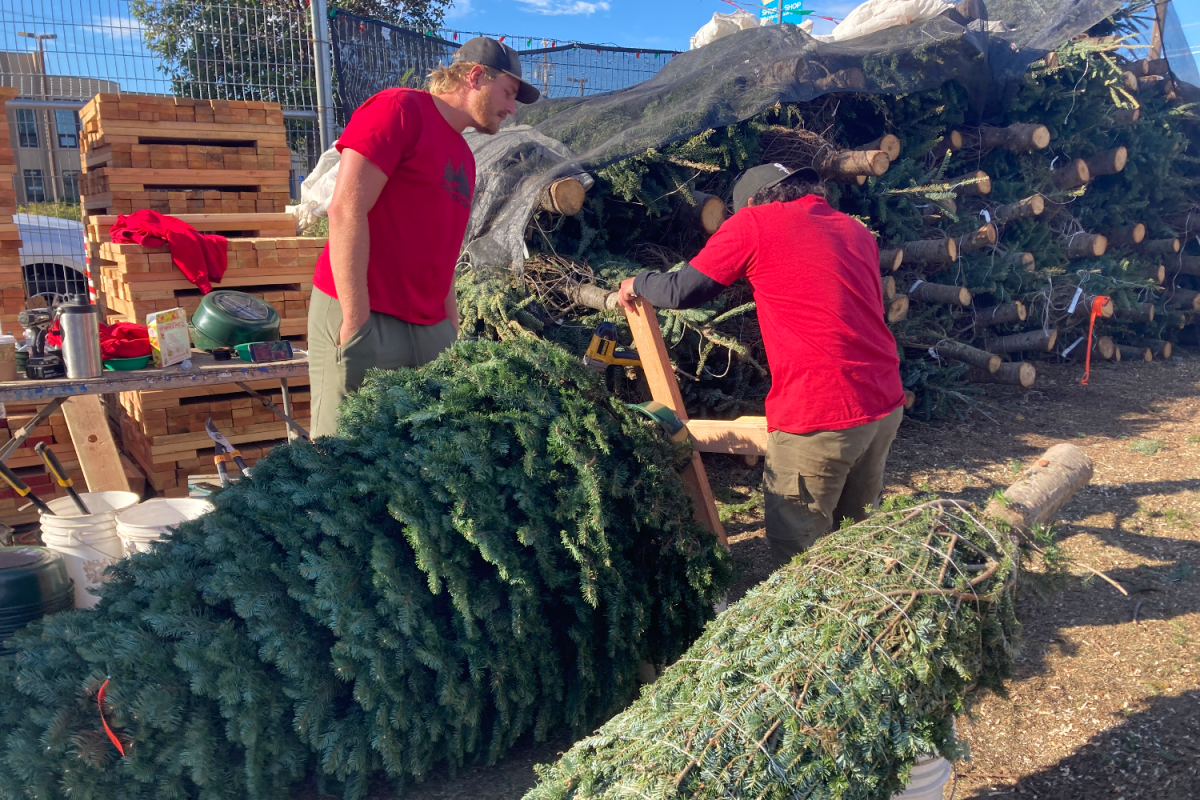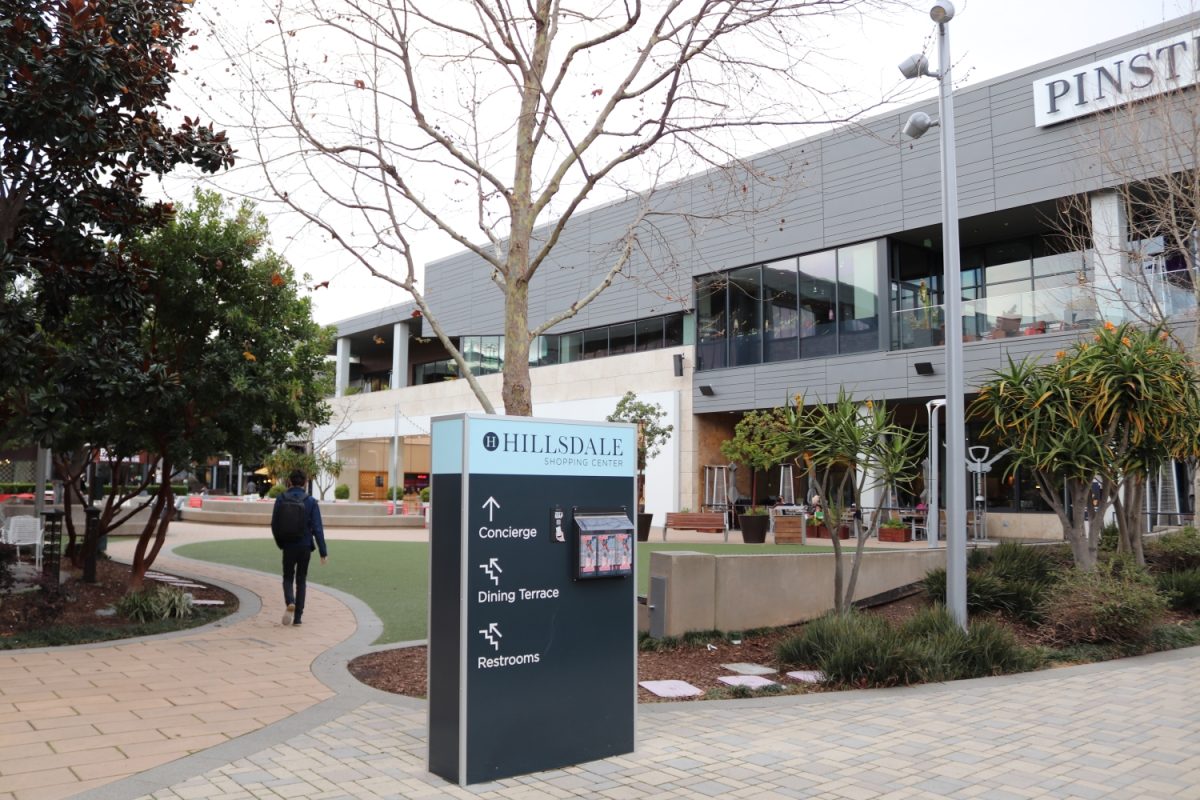As a means to carry on festive spirits from Thanksgiving, American families often find themselves rushing to Christmas tree lots to embark on a quest for their ideal Christmas tree.
Among local tree lots is Honey Bear Trees. Beginning in the 1980s, the business, run by the Cocco family, operates annually in San Carlos, bustling with activity in the winter months as locals flock to find the perfect tree.
Michael Cocco begins setting up the lot at the start of November, and it takes him a week to get everything ready.
The lot then opens on Nov. 12, with its earlier customers, like businesses or people with bigger homes, usually coming to buy larger trees.
According to Michelle Cocco, who manages the customer service and retail side of the business, the weekend after Thanksgiving and the first week of December are the busiest due to the convenience for families that are already together as a result of Thanksgiving break.
“They want to do it together,” Michelle Cocco said.
At the Honey Bear Trees lot, employees help guide families through the tree selection process.
“We like the ritual of going out to get trees,” said Allison Kern, a customer at the lot.
Although the selling and harvesting of Christmas trees is seasonal, the trees’ actual growth requires year-round effort and constant care.
Honey Bear Trees grows its own trees and buys the rest from other farmers, unlike many other retail lots that solely buy the trees.

“We pride ourselves on the quality of the trees,” Michael Cocco said.
Michael Cocco and his father grow the trees in Oregon, the state that produces the most Christmas trees in the country, according to World Population Review.
“California has a very hard time growing Christmas trees. It’s too hot,” Michael Cocco said.
Due to climate change, the lot sells six to seven species of trees grown at varying elevations. For example, noble firs, which need to be grown at 1000 feet of elevation, are becoming more scarce in supply, causing the lot to look towards other species to meet demand.
Beyond elevation and temperature requirements, a lot of work is put into the growth of the quintessential Christmas tree. Base pruning, sheering, shaping, and stunting a tree’s growth are all required to achieve the iconic look.
Due to the long-term nature of Christmas tree growing, retailers must also account for a prior year’s planting, sometimes causing farmers to occasionally create shortages in order to increase demand, according to Michael Cocco.
Beyond their tree quality, Honey Bear Trees places a special emphasis on creating a cheerful community with its customers.
“Meeting new people every day is really cool,” said Haven Stephenson, an employee at Honey Bear Trees.
According to Michelle Cocco, the work never gets repetitive, and the holiday spirit puts customers in a good mood.
“The kids, when they’re running around the tree lot. That’s my favorite part,” Michelle Cocco said.
While Christmas trees are their primary focus, Honey Bear Trees also sells wreaths and decorations.
Additionally, the family business runs a fundraising program where 15% of the profits from any purchase are donated to a customer’s organization of choice, like a soccer club, school, or church.
“Giving back to where we grew up is super important to us,” Michelle Cocco said.












